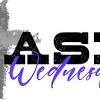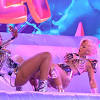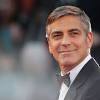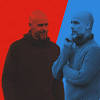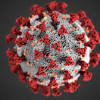Mikhail Gorbachev, who ended the Cold War, dies aged 91 - agencies

Mikhail Gorbachev, who ended the Cold War without bloodshed but failed to prevent the collapse of the Soviet Union, died on Tuesday local time at the age of 91, Russian news agencies cited hospital officials as saying.

Mikhail Gorbachev. Photo: AFP
Gorbachev, the last Soviet president, forged arms reduction deals with the United States and partnerships with Western powers to remove the Iron Curtain that had divided Europe since WWII and bring about the reunification of Germany.
When pro-democracy protests swept across the Soviet bloc nations of communist Eastern Europe in 1989, he refrained from using force - unlike previous Kremlin leaders who had sent tanks to crush uprisings in Hungary in 1956 and Czechoslovakia in 1968.
But the protests fuelled aspirations for autonomy in the 15 republics of the Soviet Union, which disintegrated over the next two years in chaotic fashion.
Gorbachev struggled in vain to prevent that collapse.

Photograph of President Ronald Reagan talking to Soviet general secretary of the Communist Party of the Soviet Union Mikhail Gorbachev. Dated 1985. Photo: Ann Ronan Picture Library / Photo12 via AFP
On becoming general secretary of the Soviet Communist Party in 1985, aged just 54, he had set out to revitalise the system by introducing limited political and economic freedoms, but his reforms spun out of control.
His policy of 'glasnost', or free speech, allowed previously unthinkable criticism of the party and the state, but also emboldened nationalists who began to press for independence in the Baltic republics of Latvia, Lithuania, Estonia and elsewhere.
Many Russians never forgave Gorbachev for the turbulence that his reforms unleashed, considering the subsequent plunge in their living standards too high a price to pay for democracy.
After visiting Gorbachev in hospital on 30 June, liberal economist Ruslan Grinberg told the armed forces news outlet Zvezda: "He gave us all freedom - but we don't know what to do with it."

US President George Bush and Soviet President Mikhail S Gorbachev attend the Madrid Conference of 1991 in Madrid on 30 October 1991. Photo: The Yomiuri Shimbun via AFP
Here is a timeline of some key events over the nearly seven years that Gorbachev held power in the Soviet Union.
March 1985 - Mikhail Sergeyevich Gorbachev, at 54 the youngest member of the Politburo, becomes General Secretary of the Communist Party after the death of Konstantin Chernenko. He launches programme of perestroika (restructuring) and glasnost (openness) to jerk the country out of political and economic stagnation.
November 1985 - Gorbachev and U.S. President Ronald Reagan hold their first summit in Geneva; Gorbachev says he is "very optimistic" about detente and future arms cuts.
April 1986 - Explosion at Chernobyl nuclear reactor spreads radioactive cloud across Europe. Soviet authorities admit it only three days later, raising doubts about glasnost.
December 1986 - Dr Andrei Sakharov, the father of the dissident movement, is released from exile after telephone call from Gorbachev - one of hundreds of political and religious dissidents freed during his rule.
May 1987 - A young German named Mathias Rust breaches Soviet air defences by flying a Cessna light aircraft from Helsinki to central Moscow, landing on Red Square. Gorbachev launches a purge of top defence officials.
October 1987 - Prominent Russian reformer Boris Yeltsin clashes with Gorbachev over the pace of perestroika and leaves the ruling Politburo.
December 1987 - Gorbachev and Reagan sign the first treaty to cut nuclear arsenals in Washington. All Soviet and US intermediate range missiles are to be dismantled.
October 1988 - Gorbachev consolidates power by becoming chairman of presidium of the Supreme Soviet, the national legislature.
February 1989 - Nine-year Soviet military involvement in Afghanistan ends. Independence movements gain momentum in the Baltic republics, Georgia and Ukraine.
March 1989 - Soviet Union holds first competitive multi-candidate elections to choose a Congress of People's Deputies. Many prominent old guard Communists lose out to independents, and separatists win majority of seats in the Baltic republics of Estonia, Latvia and Lithuania.
November 1989 - Popular revolutions sweep away communist governments in East Germany and the rest of Eastern Europe. The Soviet Union makes no attempt to intervene as its satellite regimes fall.
December 1989 - Gorbachev and US President George HW Bush, at a summit in Malta, hail the end of the Cold War.
February 1990 - The Communist Party surrenders its guaranteed monopoly of power. Parliament agrees to give Gorbachev an executive presidency, with a big increase in powers. Pro-reform demonstrators hold huge rallies across the Soviet Union.
October 1990 - East and West Germany unite after intensive six-power negotiations in which Gorbachev plays a key role. The Soviet parliament approves plan to abandon Communist central planning of the economy in favour of a market economy. Gorbachev is awarded the Nobel Peace Prize.
November 1990 - Parliament empowers Gorbachev to issue decrees in almost all sectors of public activity. First draft of a Union Treaty proposed by Gorbachev gives substantial powers to the 15 republics, but four - Latvia, Lithuania, Estonia and Georgia - refuse to sign.
January 1991 - Troops crush pro-independence demonstrations in the Baltics, killing 14 people in Lithuania and five in Latvia.
March 1991 - Referendum produces overwhelming majority for preserving Soviet Union as renewed "federation of equal sovereign republics" but six republics boycott the vote.
April 1991 - Warsaw Pact of East European nations disbanded.
June 1991 - Boris Yeltsin elected president of Russia.
19 August, 1991 - Citing Gorbachev's alleged ill health, his deputy Gennady Yanayev takes over as president at head of hardline Communist junta. State of emergency declared in some areas. Estonian parliament declares independence.
21 August - Coup collapses, destroying conservative caucus at centre and giving a huge fillip to separatists in republics. Latvian parliament declares independence.
24 August - Gorbachev resigns as leader of the Communist Party, orders seizure by the state of its property, bans it from all state organisations and suggests it dissolve itself. Ukrainian parliament declares independence. Within weeks, all but Kazakhstan and Russia have done the same.
6 September - Soviet supreme legislature recognises the independence of Lithuania, Latvia and Estonia. Congress scraps 1922 Union Treaty and hands power to interim authority pending signature of treaty for a voluntary Union of Sovereign States.
16 November - Russia takes control of almost all Soviet gold and diamond reserves and of oil exports. Later it announces takeover of economic ministries.
8 December - Russia, Ukraine and Byelorussia proclaim Commonwealth of Independent States with no role for a central authority or Gorbachev. At first, he resists new order and refuses to resign. Slowly he comes round to accepting the inevitable.
25 December, 1991 - Gorbachev resigns as president of the Soviet Union, which is formally dissolved the following day.
- Reuters


 New Zealand
New Zealand Argentina
Argentina  Australia
Australia  Austria
Austria  Brazil
Brazil  Canada
Canada  Chile
Chile  Czechia
Czechia  France
France  Germany
Germany  Greece
Greece  Italy
Italy  Mexico
Mexico  Nigeria
Nigeria  Norway
Norway  Poland
Poland  Portugal
Portugal  Sweden
Sweden  Switzerland
Switzerland  United Kingdom
United Kingdom  United States
United States 









